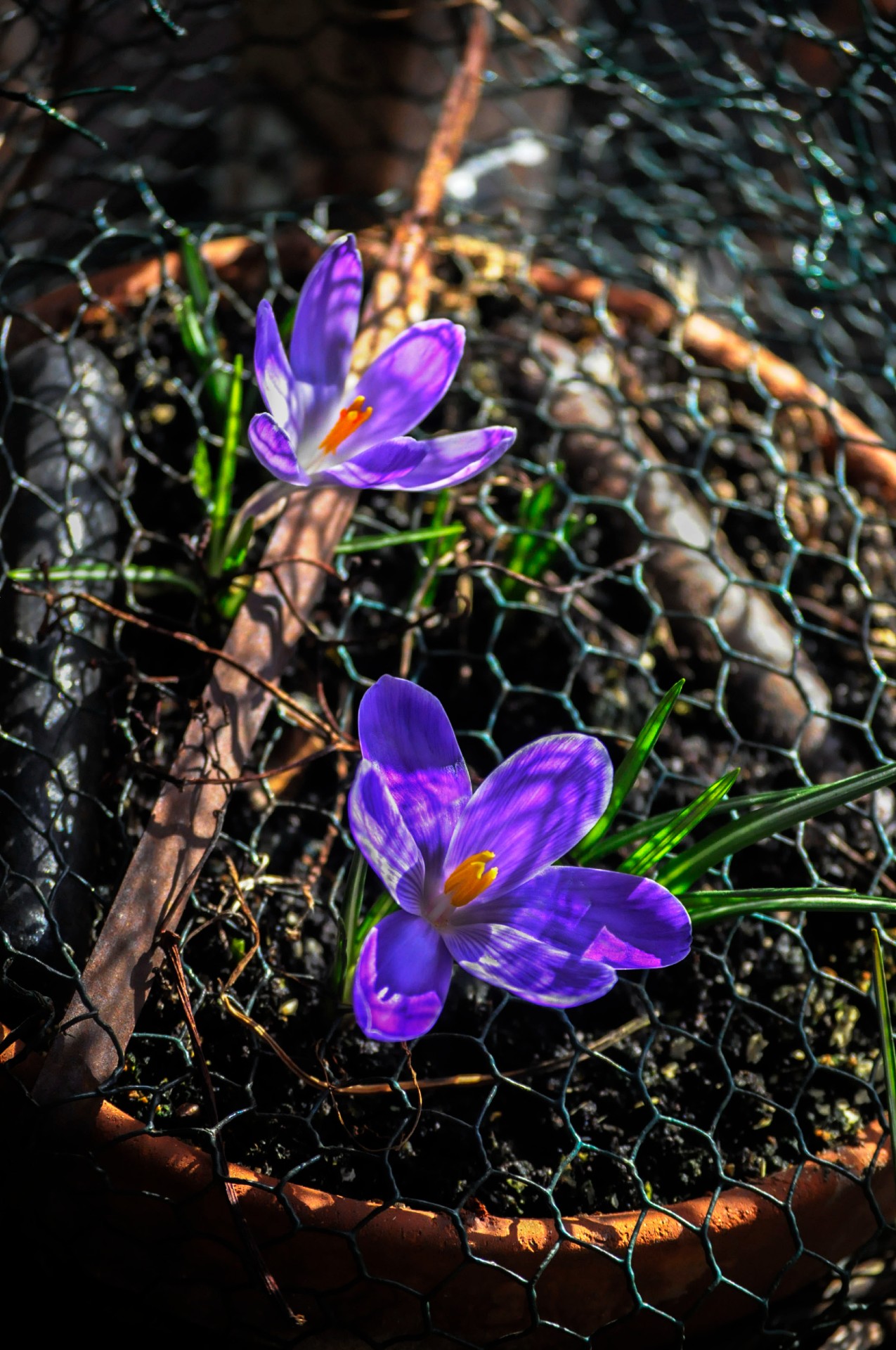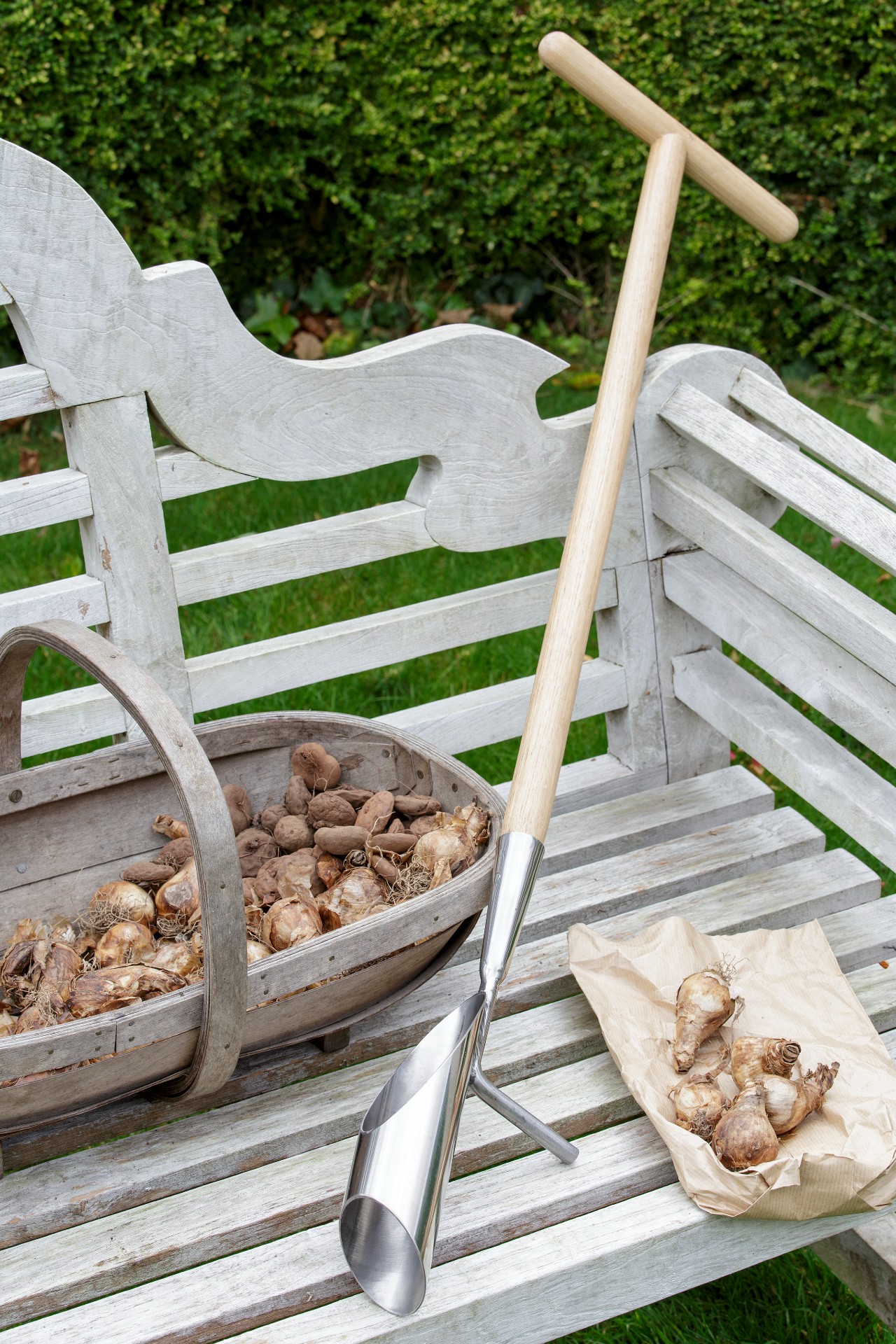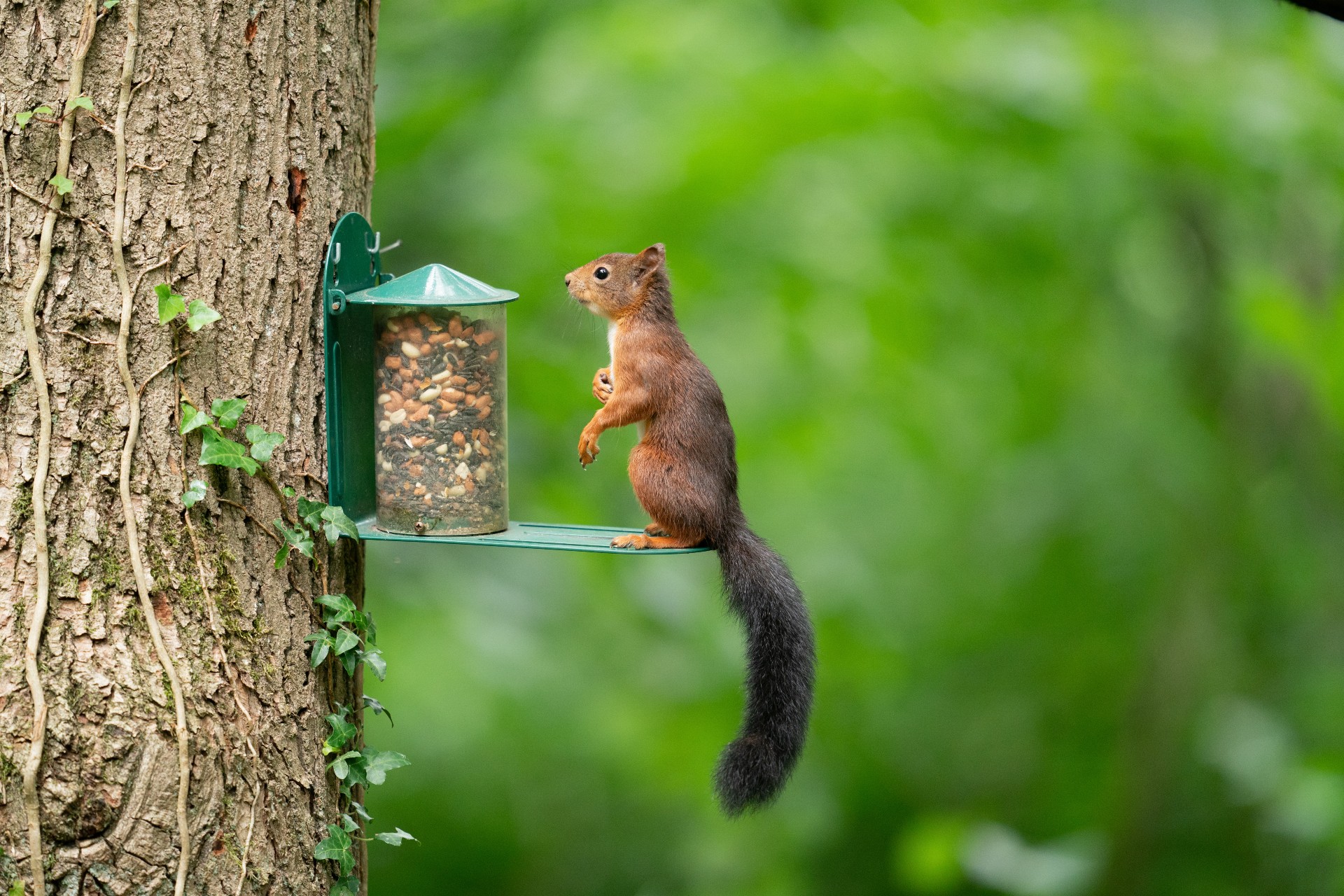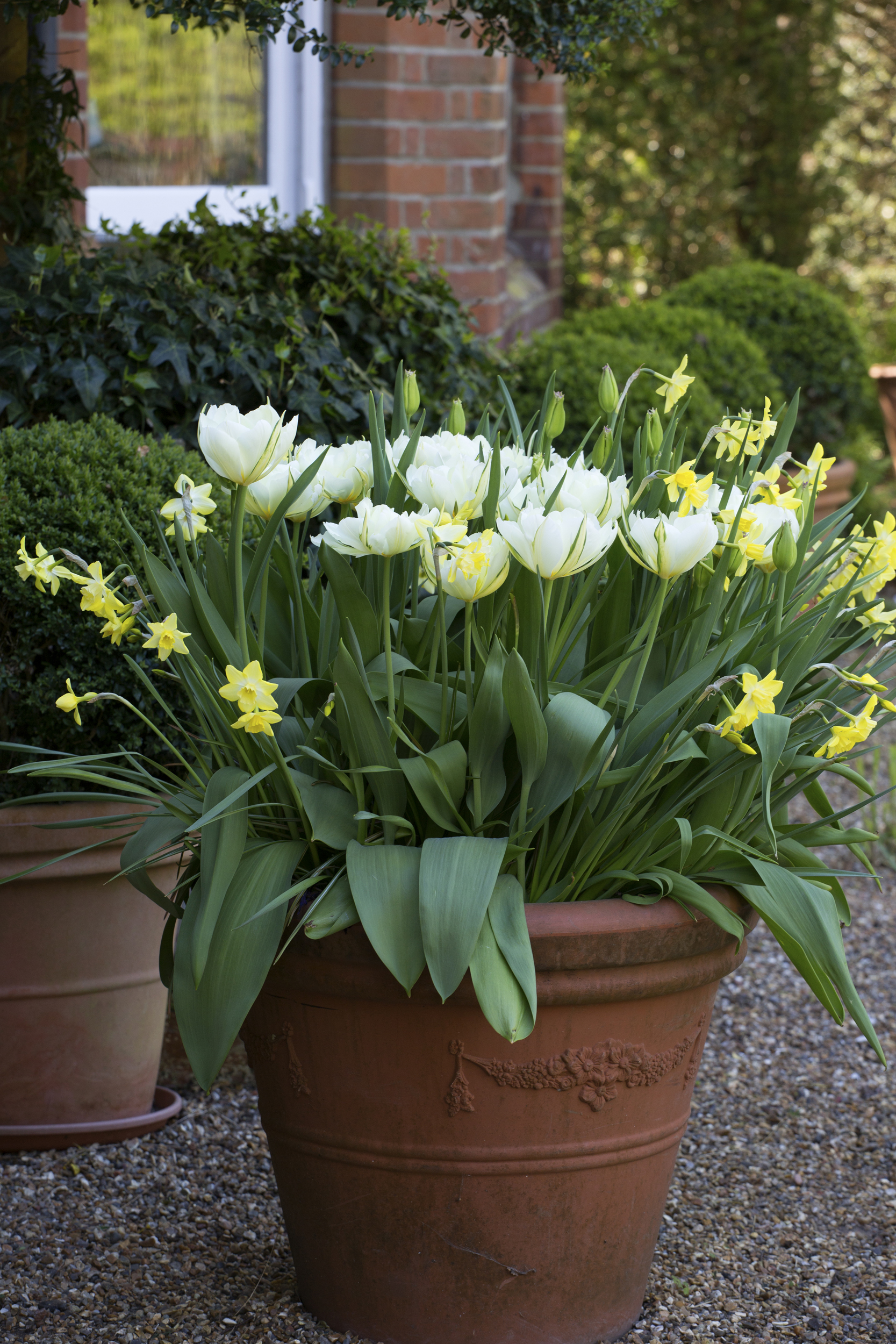Allotment expert shares 5 clever ways to stop squirrels digging up bulbs
If squirrels are forever digging up and eating tulip, crocus or other spring bulbs, whether they are in the ground or in pots, there are some clever ways to outsmart these critters according to an allotment expert.


Bright-eyed and bushy-tailed, squirrels are some of the cutest wild visitors to our backyards. However, if you're wondering how to stop squirrels from digging up bulbs then it might be that they are crossing a bit of a line and are now very much getting on your nerves.
From eating homegrown fruit crops to stealing food from bird feeders, they can be a real pest. And as well as finding local squirrels eating pumpkins, digging up our lovingly-planted flower bulbs, undoing all our hard work and ruining our spring displays, is the next biggest crime they tend to commit.
Why do they do it? It is usually either because they think freshly dug soil means another squirrel has left a stash of nuts or food there; or because they’re looking for somewhere to hide their own supplies (and soft soil or compost where bulbs have recently been planted makes the job much easier). It’s understandable, and actually quite clever, but it doesn’t make us gardeners any happier about it!
So, how do you protect your bulbs and stop them from becoming squirrel food? We asked botanist, gardener and allotment expert Dr Chris Wood.

Create a 'lid' for your pots using chicken wire to deter squirrels yet allow shoots to grow through
1. Use chicken wire and soft prickle strips
The best way to deter squirrels? Wood firstly recommends using chicken wire.
‘Squirrels hate the feeling of metal on their teeth, and while they can’t get past it, bulb shoots can grow through it, making it the ideal barrier,’ he explains. ‘Once you’ve planted your bulbs in the ground and covered them up, lay a piece of chicken wire over the area. You can cover this in a thin layer of soil, or mulch such as wood chippings and leave it there until after your bulbs have flowered in the spring; or you can simply lay it on top of the soil, holding it in place at the sides with something like tent pegs or rocks, removing it once your bulbs start to poke through. If you’re planting in pots, the method is much the same – just make a ‘lid’ for your pots with chicken wire, and shape it or tie it with wire around the outside to hold it.’

A bulb planting tool can help ensure you place bulbs deeper than squirrels like to dig
Wood also says that prickle strips with rubber spikes are good options. Plus, they will double up if you're getting rid of pigeons in your outdoor space or stopping cats from doing their business where you don't want them to! This prickle strip on Amazon comes with metal pegs to hold it in place.
Get small space home decor ideas, celeb inspiration, DIY tips and more, straight to your inbox!
2. Plant bulbs further down
One of the biggest mistakes gardeners make when planting bulbs? Not placing them deep enough in the soil. Most squirrels will only dig down an inch or two before giving up, says gardening expert Sam Marlow, from GardenBuildingsDirect.co.uk. ‘So, make sure to plant the bulbs at an appropriate depth, of around six to eight inches, as this will help stop squirrels from digging for them.’
To make the job easier, you could try using a bulb planter. The ProPlugger 5-in-1 is Amazon's top choice and lets you plant bulbs deep while standing.

Distract hungry squirrels with a dedicated squirrel feeder, such as this National Trust feeder by CJWildlife
3. Feed the squirrels
Believe it or not, it’s possible to discourage squirrels from eating your bulbs by encouraging them to eat something else entirely. ‘During the autumn, squirrels will be looking for more food sources to help them fatten up for the cold months ahead and to stock up on food reserves for the winter,’ explains Eric Michels, from CJ Wildlife. ‘So, one of the best ways to deter them from pilfering your spring bulbs is to provide a plentiful supply of alternative food so that they aren’t tempted to go digging in your beds and borders. If they have their own food in an easily accessible squirrel feeder, they are much less likely to steal from elsewhere in your garden!’
Squirrels prefer to sit while they feed, so Eric recommends opting for a feeder with a platform for perching, and an easy-access lid, such as the Vivara squirrel feeder or the National Trust Green Metal squirrel feeder. ‘Simply fill the feeder with special squirrel food like CJ Wildlife’s Squirrel Blend to ensure they have a balanced and nutritional diet. All the squirrel has to do is learn to lift the lid and take food as required. Just be patient and give them a chance – it will keep both squirrels and humans entertained as they work it out!’ says Eric.
4. Make digging hard work
Squirrels are surprisingly lazy when it comes to digging. Make the job harder for them, and they’re more likely to give up long before they reach your prized bulbs. ‘Try disguising the area where you’ve planted bulbs with leaves or wood chippings, so the freshly dug soil is less visible,’ suggests Dr Wood. ‘You can also scatter crushed oyster shells or whelk shells, gravel or crushed stones on the soil to deter them.’
Some experts recommend using strong-smelling substances such as coffee grounds, garlic powder, black pepper and cinnamon (or spray containing some of these ingredients) around the bulb-planting site to put squirrels off, however heavy rainfall will often wash this away, so you’ll need to reapply it regularly. Cayenne pepper is also often suggested, however it can irritate squirrels’ eyes if they get it on their paws and rub their faces, so is probably best avoided.

Plant tulips with daffodils to help deter squirrels
5. Mix up your floral display
Like humans, squirrels have their favorite foods, and when it comes to bulbs, tulips and crocuses are top of their wishlist. Squirrels actually avoid others such as daffodils bulbs and alliums because they dislike the strong smell; and hyacinths, muscari (grape hyacinths) and snowdrops because they are toxic to them if eaten. ‘So, to discourage squirrels from digging up your tulips and crocuses, try planting these less favorable bulbs in amongst them to deter them,’ suggests Dr Wood.
A similar idea is to use ‘companion planting,’ whereby you plant garlic, leeks, onions, nasturtiums, mint or marigolds around the area where you’ve planted your bulbs. These also have strong smells that squirrels can’t stand, and should hopefully mean the furry critters stay well away.

Jenny has been a features and lifestyle journalist for over 20 years and writes about homes and gardens for national newspapers and magazines such as the Daily Mail, Good Homes and Easy Gardens as well as for Realhomes.com. When not writing about homes, she’s helping redecorate them as an interior designer at Decorbuddi.com, tackling everything from bedroom revamps to kitchen renovations. Jenny believes you can never have too much colour, cushions or cacti, and has a particular soft spot for terrazzo.